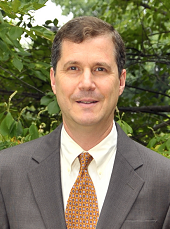ENME 725
Course Syllabus
Course Description
Provide an introduction to optimization under uncertainty. Recourse problems, chance-constrained programming, robust optimization, reliability programming, value of information, two-stage problems with recourse, decomposition methods, nonlinear and linear programming theory, probability theory.
Suggested Course Textbooks
- J. R. Birge and F. Louveaux, Introduction to Stochastic Programming, Springer-Verlag, New York 1997, ISBN 0-387-98217-5.
- A. J. Conejo, M. Carrion, J. M. Morales Decision Making under Uncertainty in Electricity Markets, , Springer, New York 2010, ISBN: 978-1-4419-7420-4.
Other Reference Books
- S. Vajda, Probabilisitic Programming, Academic Press, New York, 1972.
- W.L. Winston, J.B. Goldberg, Operations Research: Applications and Algorithms (Vol. 3), Belmont, CA, Thomson/Brooks/Cole, 2004.
- A. Ben-Tal, L. El Ghaoui, A. Nemirovski. Robust Optimization (Vol. 28). Princeton University Press, 2009.
Also, various related articles to be distributed.
Course Objective
- Provide understanding for studying problems that involve optimization under uncertainty.
- Learn about various stochastic programming formulations (chance constrained programs, two stage methods with recourse, robust optimization) relevant to engineering and economic settings.
- Present theory for solutions to such problems.
- Present algorithms to solve these problems.
Instructor
Dr. Steven A. Gabriel
www.stevenagabriel.umd.edu
Grading
Grading is based on comprehension and mastery of the material and the overall course score is computed as follows:
- Homeworks, 5% of course grade. Homeworks will be assigned and due by the indicated due date. They are practice for the exam and the project and you may work with others on the homeworks but must submit the homeworks separately. Please indicate who you worked with as part of the homework. We will use the class times to solve new problems together interactively as well as go over some of the homework problem solutions posted on ELMS as well as delve more deeply into some of the mathematical results. Note: the two exams will strongly reflect the homeworks so it is in the student's interest to try as many of the homeworks as possible.
- Quizzes about the lectures, 5% of the course grade-- these will be short true-false/multiple-choice quizzes that you can take any number of times to actively listen to the lectures prior to class time.
- Exam #1, 35% of course grade (this is to be only the work of the student, no collaborating)-- this will be mostly on Module 1 (Recourse problems) and will likely be on November 15, 2023.
- Exam # 2, 40% of course grade (this is to be only the work of the student, no collaborating)-- this will be covering Module 1 (Recourse problems) and Module 2 (Chance-constrained problems) and will be held at the time the final is selected by the registrar (after the lectures are done, probably around mid-December).
- Project report, 15% of the course grade (you can work with a team of 1-3 students)-- topic to be discussed later in the course-- most likely Robust Optimization (Module 3). The project report will also be due the same day of exam #2 at the time this exam starts. Homework solutions will be posted on ELMS 9:30am the day they are due.
Course Policies
Students are encouraged to attend all lectures to maximize their understanding of the course material.
Students will complete the homeworks and then exam by themselves although teams of one to three students will be allowed for the Case Study portion of the course.
The course is subject to the Code of Academic Integrity available on the web. The Code prohibits students from cheating on exams, plagiarizing papers, submitting the same paper for credit in two courses without authorization, buying papers, submitting fraudulent documents, and forging signatures.
The University has a legal obligation to provide appropriate accommodations for students with disabilities. Please inform Dr. Gabriel of any accommodations needed relative to disabilities. Also, University of Maryland policy states that students should not be penalized due to observances of their religious beliefs. Please inform Dr. Gabriel of such instances well in advance so that appropriate steps can be taken.
Short Bio on Dr. Gabriel
Academic Experience: Besides teaching at University of Maryland, Dr. Gabriel has held appointments in the Mathematical Sciences Department at The Johns Hopkins University, and in the Engineering Management and Systems Engineering Department at The George Washington University. In addition, he has served as a postdoctoral researcher in the Mathematics and Computer Science Division at Argonne National Laboratory. Besides being a faculty member in the Department of Mechanical Engineering at UMD, he is also part of the faculty in Applied Mathematics, Statistics, and Scientific Computing. Also, he has also been: Director of the Master of Engineering and Public Policy Program (http://www.mepp.umd.edu) and Group Coordinator for the Civil Systems Program (http://www.civilsystems.umd.edu) within the Department of Civil & Environmental Engineering where he was a faculty member 2000-2015.
Industry Experience: Dr. Gabriel has over 25 years of industry and academic experience involving mathematical modeling of engineering-economic systems with applications in energy, transportation, service performance, and operations management. His specialties include optimization/equilibrium modeling.
![]()
ENCE725 home | Syllabus | Schedule & Homeworks | Case Study | Downloads & Links
